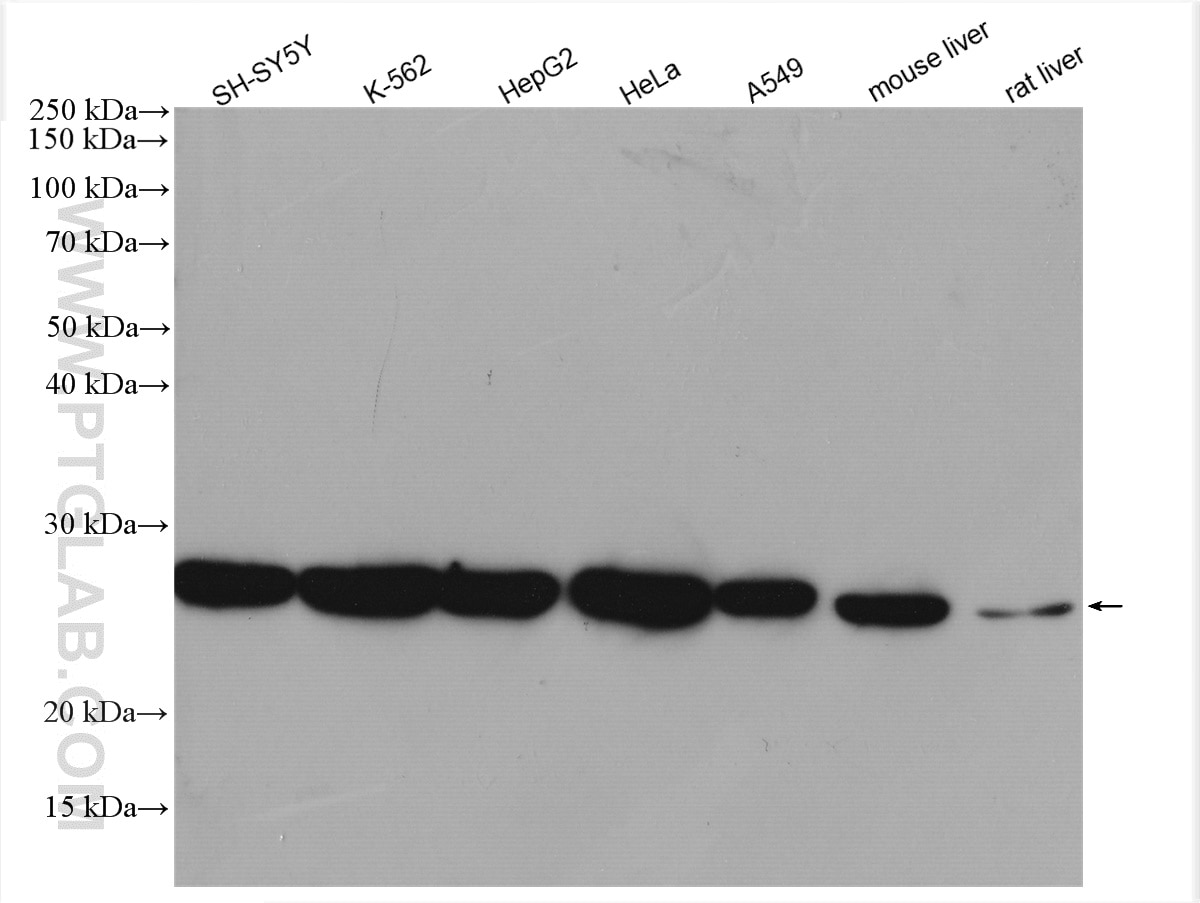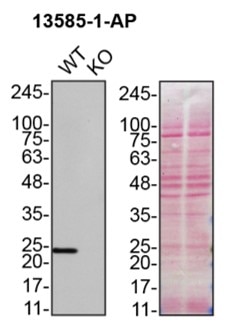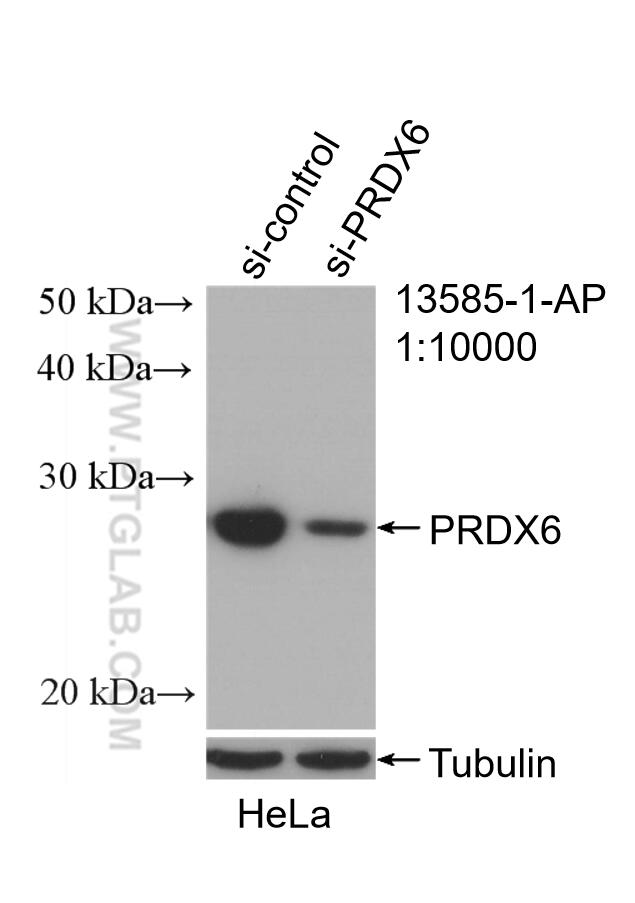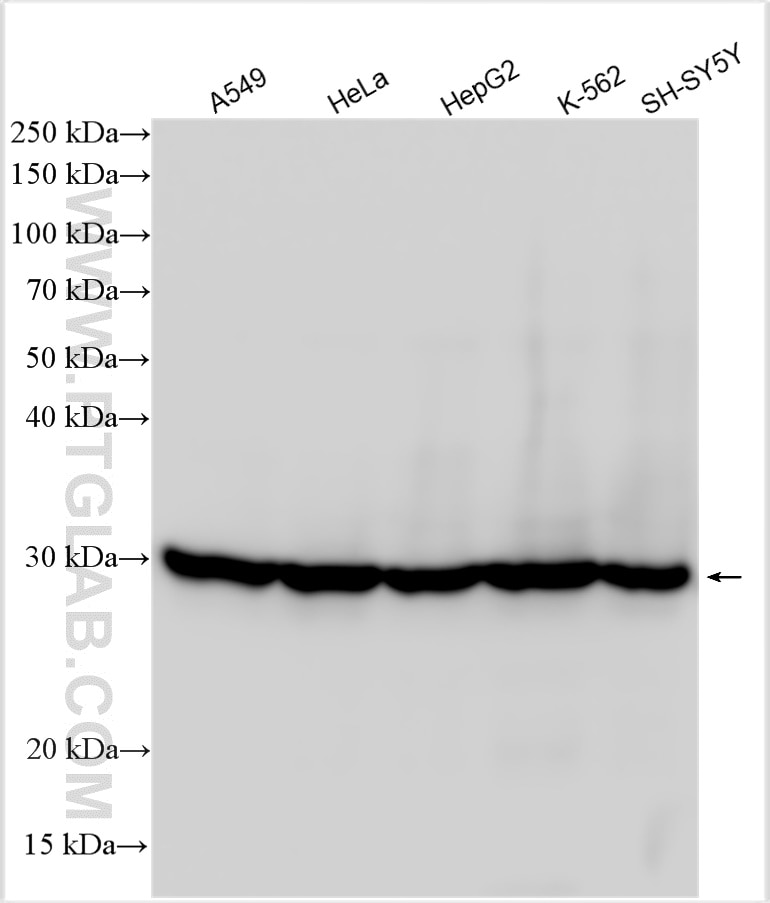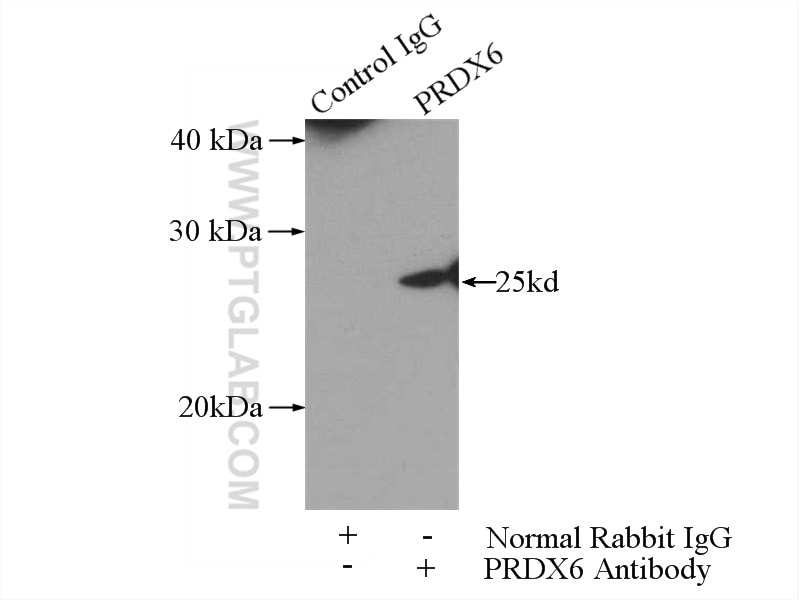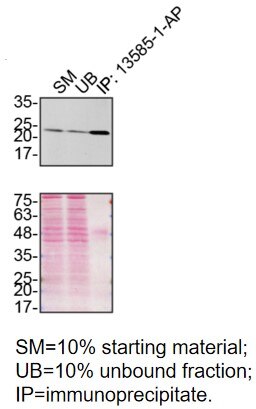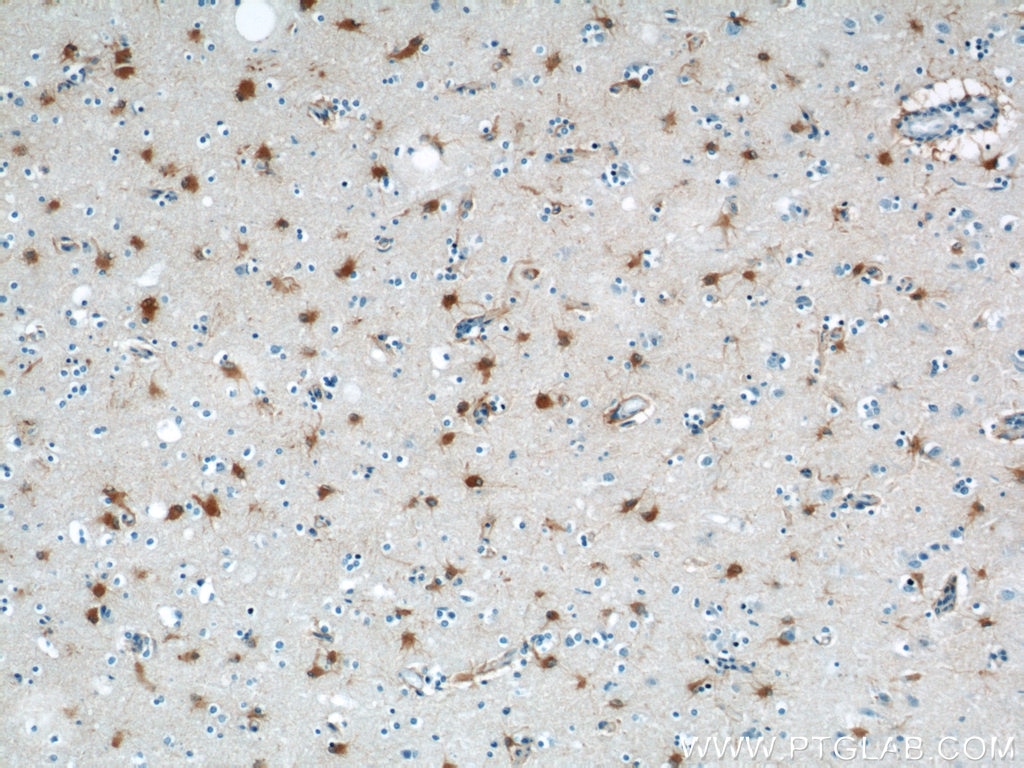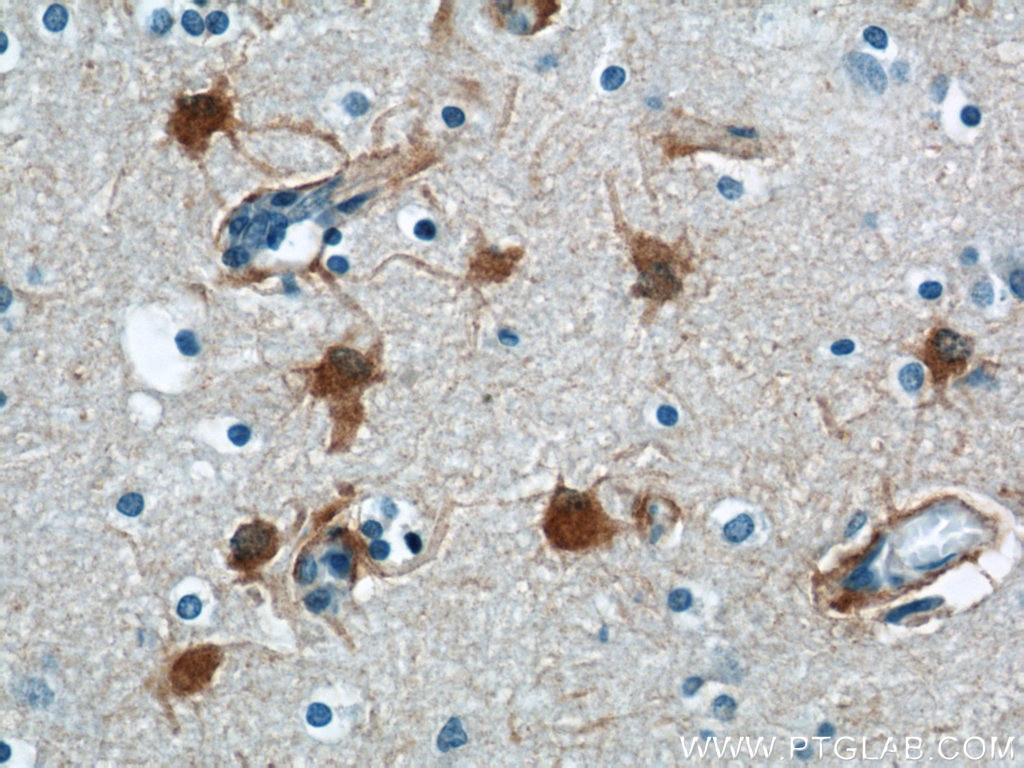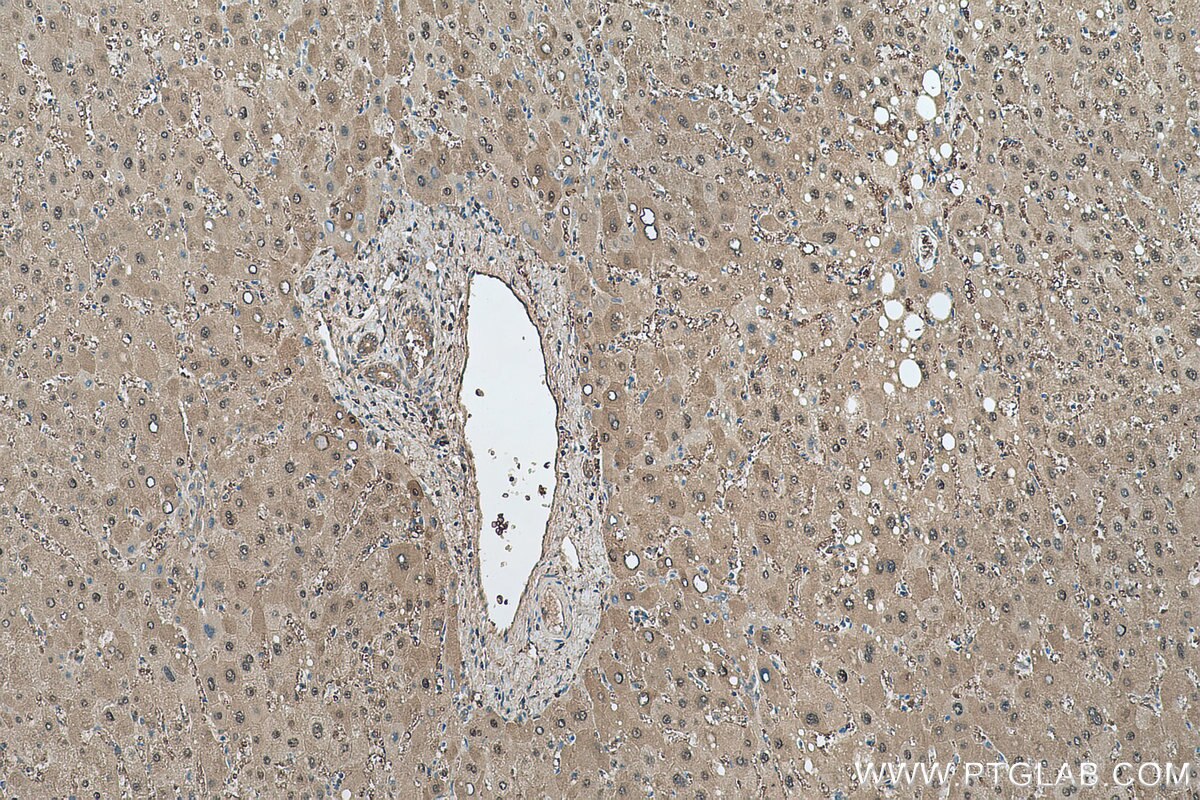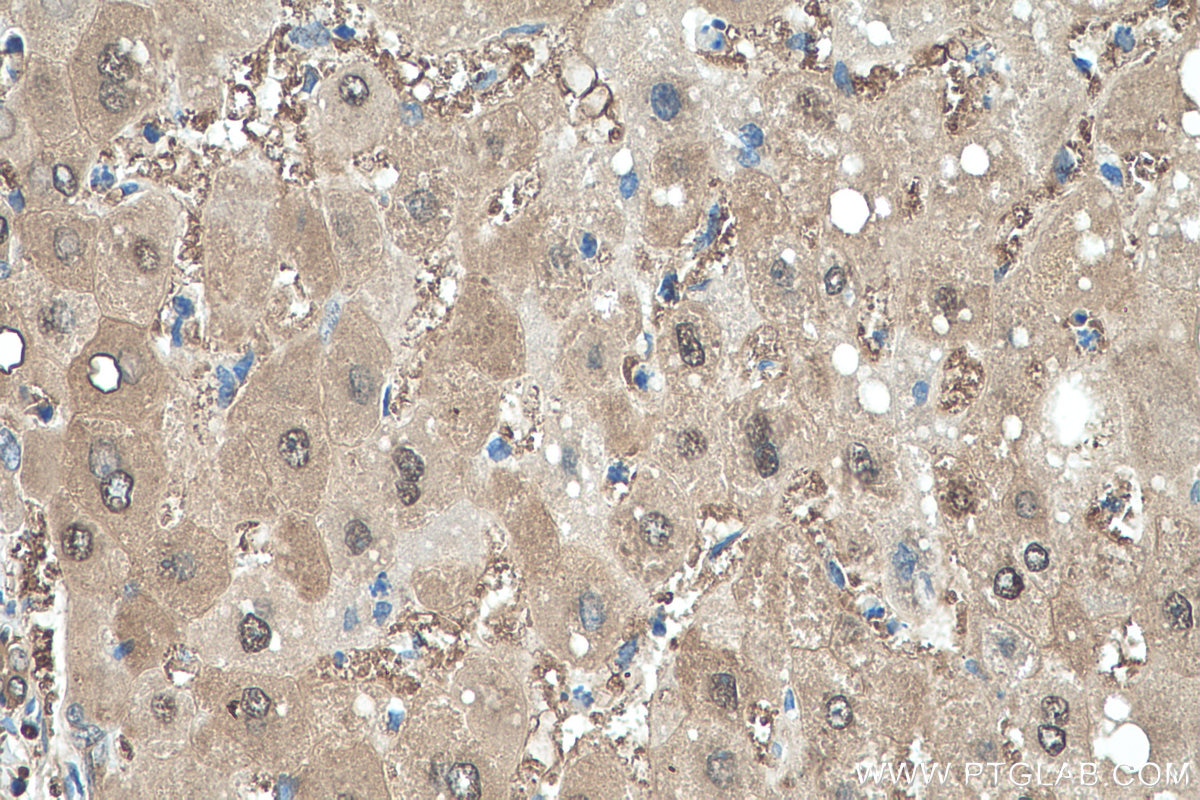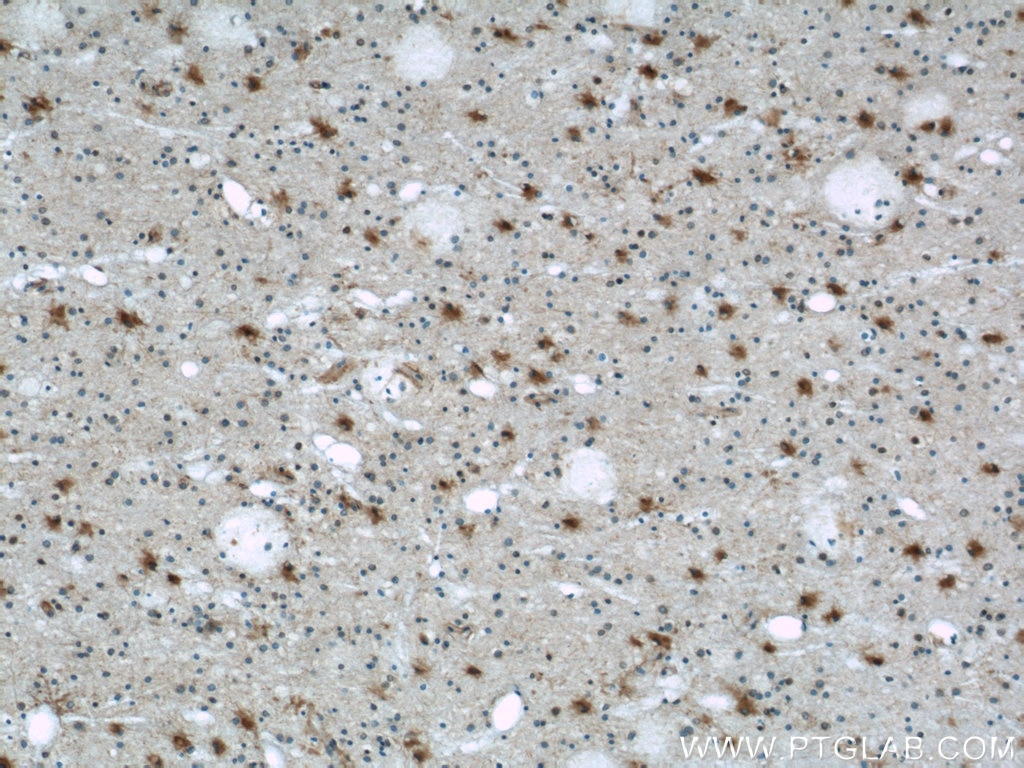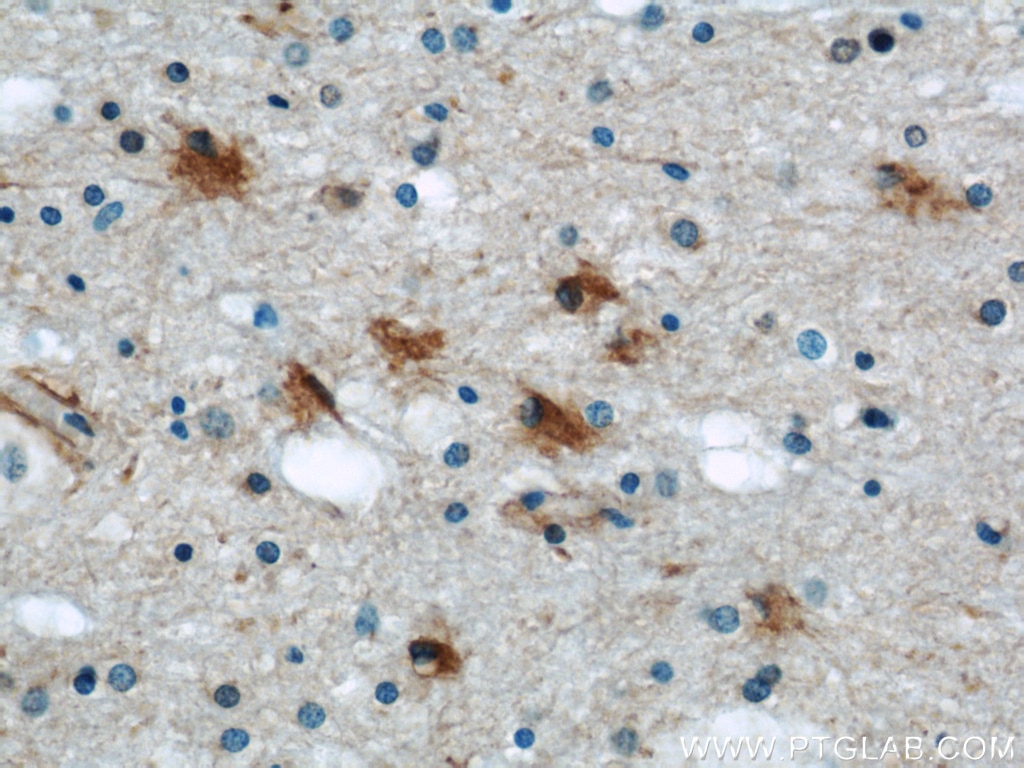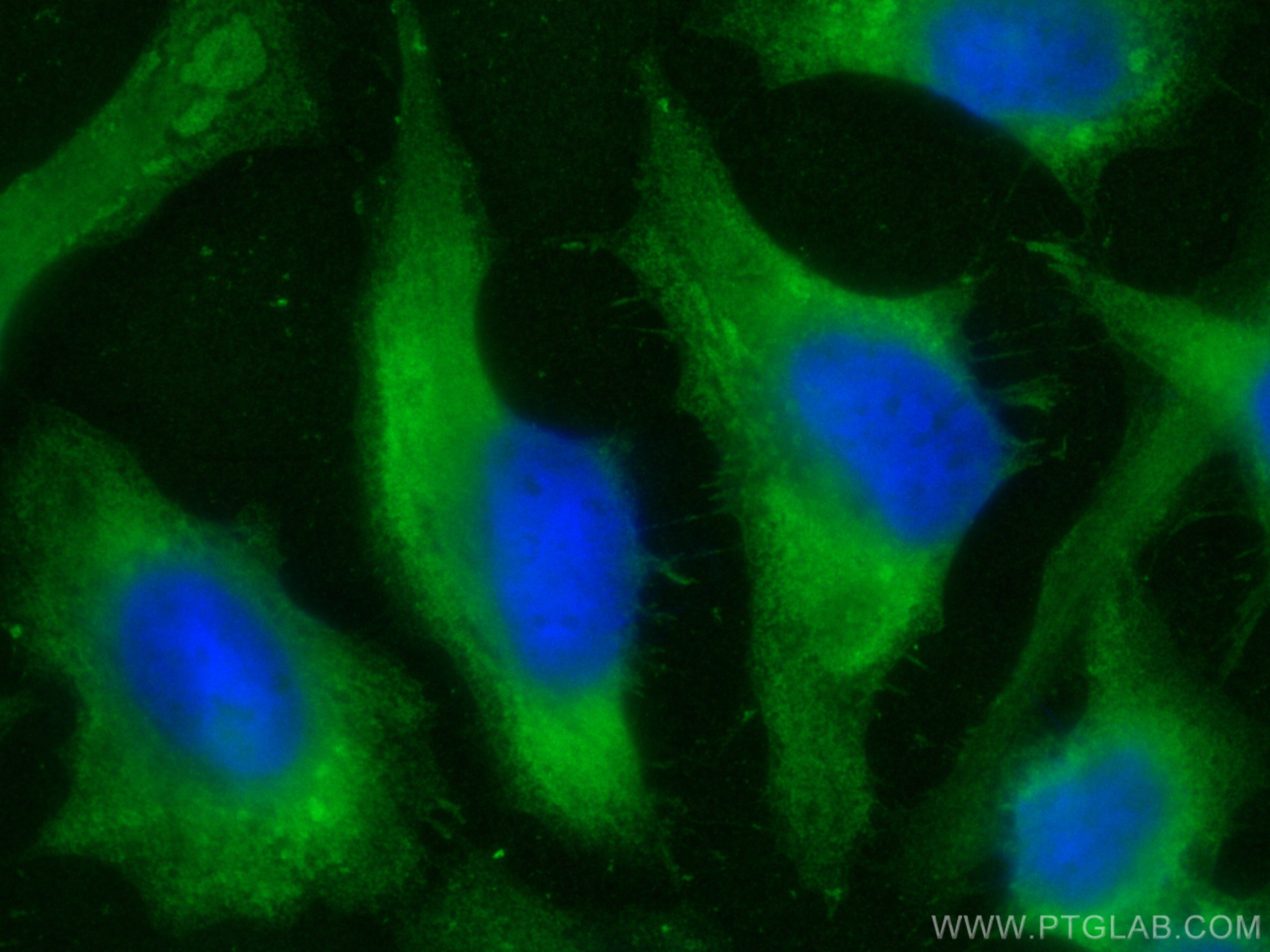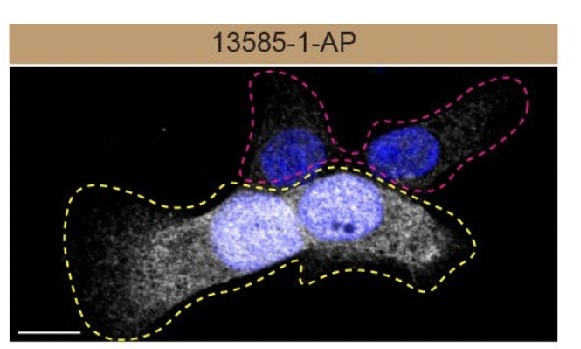Validation Data Gallery
Tested Applications
| Positive WB detected in | SH-SY5Y cells, A549 cells, HeLa cells, HAP1, K-562 cells, HepG2 cells, mouse liver tissue, rat liver tissue |
| Positive IP detected in | HeLa cells, HAP1 cells |
| Positive IHC detected in | human liver tissue, human brain tissue Note: suggested antigen retrieval with TE buffer pH 9.0; (*) Alternatively, antigen retrieval may be performed with citrate buffer pH 6.0 |
| Positive IF/ICC detected in | HeLa cells |
Recommended dilution
| Application | Dilution |
|---|---|
| Western Blot (WB) | WB : 1:2000-1:12000 |
| Immunoprecipitation (IP) | IP : 0.5-4.0 ug for 1.0-3.0 mg of total protein lysate |
| Immunohistochemistry (IHC) | IHC : 1:100-1:1000 |
| Immunofluorescence (IF)/ICC | IF/ICC : 1:200-1:800 |
| It is recommended that this reagent should be titrated in each testing system to obtain optimal results. | |
| Sample-dependent, Check data in validation data gallery. | |
Published Applications
| KD/KO | See 6 publications below |
| WB | See 36 publications below |
| IHC | See 8 publications below |
| IF | See 5 publications below |
Product Information
13585-1-AP targets PRDX6 in WB, IHC, IF/ICC, IP, ELISA applications and shows reactivity with human, mouse, rat samples.
| Tested Reactivity | human, mouse, rat |
| Cited Reactivity | human, mouse, rat |
| Host / Isotype | Rabbit / IgG |
| Class | Polyclonal |
| Type | Antibody |
| Immunogen |
CatNo: Ag4512 Product name: Recombinant human PRDX6 protein Source: e coli.-derived, PGEX-4T Tag: GST Domain: 1-224 aa of BC035857 Sequence: MPGGLLLGDVAPNFEANTTVGRIRFHDFLGDSWGILFSHPRDFTPVCTTELGRAAKLAPEFAKRNVKLIALSIDSVEDHLAWSKDINAYNCEEPTEKLPFPIIDDRNRELAILLGMLDPAEKDEKGMPVTARVVFVFGPDKKLKLSILYPATTGRNFDEILRVVISLQLTAEKRVATPVDWKDGDSVMVLPTIPEEEAKKLFPKGVFTKELPSGKKYLRYTPQP 相同性解析による交差性が予測される生物種 |
| Full Name | peroxiredoxin 6 |
| Calculated molecular weight | 224 aa, 25 kDa |
| Observed molecular weight | 25-30 kDa |
| GenBank accession number | BC035857 |
| Gene Symbol | PRDX6 |
| Gene ID (NCBI) | 9588 |
| RRID | AB_2168637 |
| Conjugate | Unconjugated |
| Form | |
| Form | Liquid |
| Purification Method | Antigen affinity purification |
| UNIPROT ID | P30041 |
| Storage Buffer | PBS with 0.02% sodium azide and 50% glycerol{{ptg:BufferTemp}}7.3 |
| Storage Conditions | Store at -20°C. Stable for one year after shipment. Aliquoting is unnecessary for -20oC storage. |
Background Information
PRDX6 (Peroxiredoxin-6), also named as AOP2 or KIAA0106, is a unique member of the peroxiredoxin family of antioxidants. PRDX6 is highly expressed in liver and protects cells from oxidative damage by reducing H2O2 and various lipid Peroxides (PMID: 17382207). It can form a dimer(PMID:20500660).PRDX6 is expressed in all major organs, with a particularly high level in lung (PMID:15890616). Prdx6 is detected at approximately 24 to 28 kDa, and can be monosumoylated with the molecular mass of about 40 kDa (PMID: 24910119).
Protocols
| Product Specific Protocols | |
|---|---|
| IF protocol for PRDX6 antibody 13585-1-AP | Download protocol |
| IHC protocol for PRDX6 antibody 13585-1-AP | Download protocol |
| IP protocol for PRDX6 antibody 13585-1-AP | Download protocol |
| WB protocol for PRDX6 antibody 13585-1-AP | Download protocol |
| Standard Protocols | |
|---|---|
| Click here to view our Standard Protocols |
Publications
| Species | Application | Title |
|---|---|---|
Nat Commun Inhibited peroxidase activity of peroxiredoxin 1 by palmitic acid exacerbates nonalcoholic steatohepatitis in male mice | ||
Nat Commun Suppression of mitochondrial ROS by prohibitin drives glioblastoma progression and therapeutic resistance. | ||
Nat Commun Functional screening implicates miR-371-3p and peroxiredoxin 6 in reversible tolerance to cancer drugs.
| ||
Br J Pharmacol Luteolin ameliorates rat myocardial ischemia-reperfusion injury through peroxiredoxin II activation. | ||
Biomed Pharmacother Glycyrrhetinic acid inhibits non-small cell lung cancer via promotion of Prdx6- and caspase-3-mediated mitochondrial apoptosis | ||
Antioxid Redox Signal Peroxiredoxin 6 is a crucial factor in the initial step of mitochondrial clearance and is upstream of the PINK1-Parkin pathway. |

